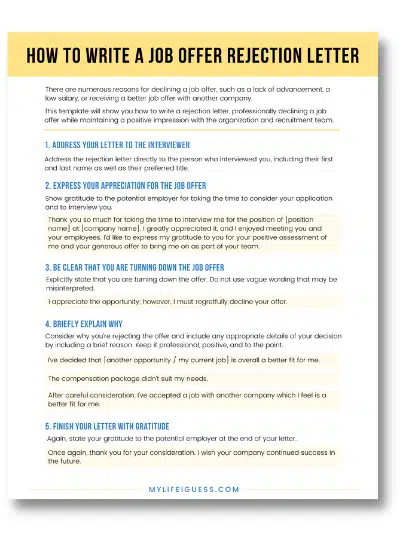With job applicants getting an average of one interview for every six applications they submit, finding a job in today’s market can feel like a full-time job. Even if you have all the right qualifications for your next career move, getting past the initial application and into an interview can be a challenge.
During the job-seeking process, you may wonder when and how to follow up when applying for and attending job interviews.
A follow-up email after an interview is a great way to show your continued interest in the position and keep yourself at the forefront of the hiring manager’s mind. Doing so professionally with the right tone and language can significantly increase your chances of getting the job.
Reasons for Sending a Follow-Up Email
There are various reasons why you should send a follow-up email after an interview:
- After applying: Following up two to three days after applying serves as a reminder to the hiring manager or recruiter that you are still interested in the position. It doesn’t hurt to double-check that they received your application, either.
- Immediately after an interview: Sending a follow-up email right after an interview allows you to thank the interviewer for their time, reiterate your interest, and highlight any critical points that may have been missed during the interview. It also shows your professionalism and attention to detail.
- After no response: If you have not heard back from the company after a couple of weeks, sending a follow-up email can remind them of your interest and prompt them to decide.
- To accept a job offer: If a company has offered you a job, sending a follow-up email is a polite and professional way to confirm your acceptance and express your excitement for the opportunity.
- To decline a job offer: If you have decided not to accept, sending a follow-up email to decline the job offer is a courteous way to thank the company for their time and consideration.
- For networking purposes: Even if you aren’t selected for the job, sending a follow-up email to thank the interviewer for their time can help you build a network of contacts in your field. You could ask them to keep you in mind for future opportunities and chat about meeting for coffee or lunch to stay connected.
Ultimately, staying in touch throughout the job search can help you stand out from other candidates and build relationships that may benefit you.
Tips for Writing a Successful Follow-Up Email
Here are some tips to keep in mind when crafting your follow-up email after an interview:
- Use the correct email: If you have more than one email address, send your follow-up email from the one you used to apply for the job. This will make it easier for the hiring manager to identify you and connect your application with your follow-up.
- Consider the timing of the email: Each type of email mentioned above has a different ideal timing. For example, sending a follow-up email immediately after an interview is recommended, while a follow-up after no response should wait at least two weeks.
- Be concise and professional: Keep your email brief and to the point. Use a professional tone and avoid using slang or informal language.
- Email the recruiter: The person who will have the most up-to-date information on a job opening is the recruiter. Email them first. If you have the contact for the interviewer (if different from the recruiter, such as a hiring manager), you might add them to the correspondence, too.
- Include all the details: No matter what type of email you are sending, identifying information is vital for helping the recruiter quickly identify who you are and which job you applied for. Include the title of the position, your name, when you had an interview (and whether it was via phone, video, or in-person), and any other relevant information.
- Add any missing information: If you forgot to mention critical experience or insight during the interview, this is your chance to include it. This could help reinforce why you are an excellent fit for the job.
- Proofread extensively: Carefully proofread your email before sending it to keep it professional.
- Keep it brief: Your follow-up email should be short and concise, up to one to three paragraphs. The hiring manager or recruiter is likely busy and doesn’t have time to read a lengthy email.
- Express gratitude and enthusiasm: Be sure to thank the interviewer for their time and express your continued interest in the position. This shows genuine appreciation and enthusiasm, which are important qualities in a potential employee.
- Avoid sounding desperate: While showing eagerness and interest in the job is essential, avoid coming across as desperate or pushy. Use a polite and professional tone throughout the email.
A Followup Email Template for Each Scenario
Here are some sample follow-up email templates that you can use for different scenarios:
After submitting an application
You should send this email two to three days after submitting your application. It should be a maximum of a few sentences to confirm the application was received and indicate your continued interest.
Subject: Follow-Up on Application for [Position Title]
Dear [Hiring Manager],
I hope this email finds you well. I am following up on my recent application for the [Position Title] at [Company Name]. I am very interested in the role and believe my skills and experience make me a strong candidate.
I am confirming that my application was received and if there is any additional information I can provide. Thank you for your consideration, and I look forward to hearing back from you.
Best regards,
[Your Name, phone number, and email]
Immediately after an interview
After your interview, sending a follow-up email within 24 hours is a good idea. This email should thank the interviewer for their time, reiterate your interest in the position, and mention any important points that may have been missed during the interview.
Depending on whether you had an interview online or in person, you can personalize your experience and connection with the interviewer. Also, adjust the rhetoric to fit your specific skill set, the job position, and anything relevant to help you stand out.
Subject: Thank You for [Position Title] Interview
Dear [Interviewer’s Name],
Thank you for meeting with me yesterday about the [Position Title] at [Company Name]. It was great learning more about the role and getting to know you and your team.
After our discussion, I am even more excited about the opportunity, and my skills and experience make me a strong fit for the position. I wanted to mention that I forgot to highlight one of my relevant experiences during the interview – [Important point]. I would also happily provide any additional information or references if needed.
Thank you again for considering me, and I look forward to hearing back from you soon.
Best regards,
[Your Name, phone number, and email]
After no response
If you haven’t heard back within two weeks of an interview or application submission, it’s appropriate to send a follow-up email to inquire about the status of your application. This email should be polite and respectful without appearing pushy or entitled.
Subject: Follow-Up on [Position Title] Application
Dear [Hiring Manager],
I hope this email finds you well. I am following up on my recent application for the [Position Title] at [Company Name]. It has been two weeks since my interview, and I am still very interested in the position and working with your team. [Include any personalized info about why you like the company or job opening based on your interview.]
I would greatly appreciate any updates or additional information regarding my application. I am excited about the opportunity, and my skills and experience make me a strong fit for the role.
Thank you again for considering me, and I look forward to hearing back from you soon.
Best regards,
[Your Name, phone number, and email]
After a job offer
If you receive a job offer (congrats!!), sending a professional and polite follow-up email is essential to accept, decline, or negotiate any terms. This shows your professionalism and enthusiasm for the position.
Accepting the Offer
Subject: Accepting [Position Title] Offer
Dear [Hiring Manager],
Thank you for offering me the [Position Title] at [Company Name]. I am excited about the opportunity and believe my skills and experience make me an excellent fit for the role. I have thoroughly reviewed the offer, and I accept it.
Please let me know if any additional steps or information are needed from me to move forward with the offer. Once again, thank you for considering me, and I look forward to being a part of the [Company Name] team.
Best regards,
[Your Name, phone number, and email]
Negotiating or Declining the Offer
You may decide to negotiate the offer or decline it. Turning down a job offer is not something most of us have any experience with, so here’s a template to use to decline a job offer that will keep things professional:
Next Steps in Your Interview Process
Sending a follow-up email is just one step in the interview process. Additional steps such as a second interview, skills test, reference checks, and background checks may exist depending on the company and position.
Regardless of the outcome, keep applying and interviewing for other positions that interest you. Don’t be afraid to follow up with a professional thank you email, even if you are not selected for the role. This will leave a positive impression on the hiring manager and keep you at the top of their mind for future opportunities.
Related Articles:
- 5 Proven Techniques to Nail Your Next Phone Interview
- 45 Questions to Ask in an Interview That Will Get You Hired Immediately
JayDee Vykoukal
JayDee is a mom, writer, and Doctor of Physical Therapy. She’s passionate about helping women live their best lives through community and education. Outside of her work as a health and mom blogger, she loves traveling the world and exploring the great outdoors with her family.

